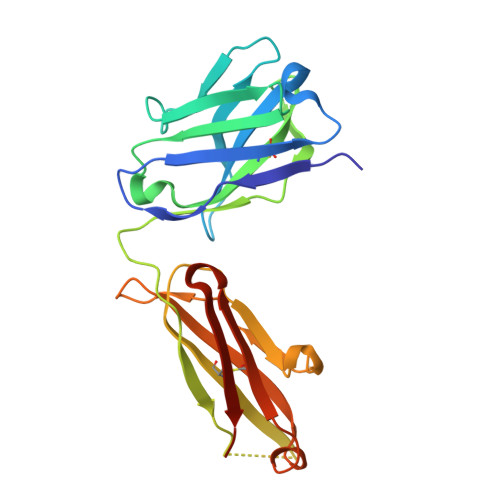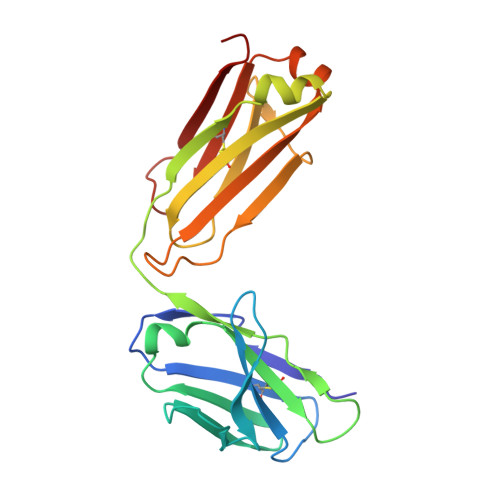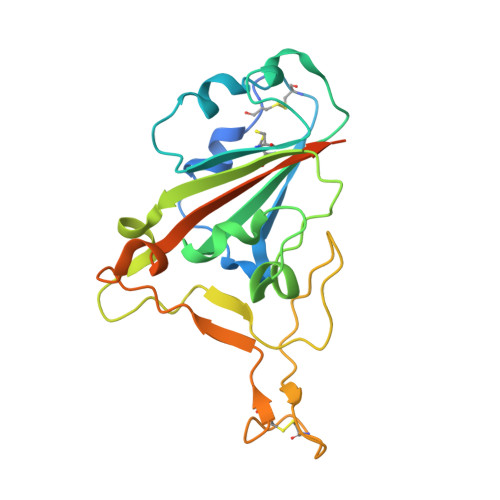Structurally Resolved SARS-CoV-2 Antibody Shows High Efficacy in Severely Infected Hamsters and Provides a Potent Cocktail Pairing Strategy.
Du, S., Cao, Y., Zhu, Q., Yu, P., Qi, F., Wang, G., Du, X., Bao, L., Deng, W., Zhu, H., Liu, J., Nie, J., Zheng, Y., Liang, H., Liu, R., Gong, S., Xu, H., Yisimayi, A., Lv, Q., Wang, B., He, R., Han, Y., Zhao, W., Bai, Y., Qu, Y., Gao, X., Ji, C., Wang, Q., Gao, N., Huang, W., Wang, Y., Xie, X.S., Su, X.D., Xiao, J., Qin, C.(2020) Cell 183: 1013-1023.e13
- PubMed: 32970990
- DOI: https://doi.org/10.1016/j.cell.2020.09.035
- Primary Citation of Related Structures:
7CH4, 7CH5, 7CHB, 7CHC, 7CHE, 7CHF, 7CHH - PubMed Abstract:
Understanding how potent neutralizing antibodies (NAbs) inhibit SARS-CoV-2 is critical for effective therapeutic development. We previously described BD-368-2, a SARS-CoV-2 NAb with high potency; however, its neutralization mechanism is largely unknown. Here, we report the 3.5-Å cryo-EM structure of BD-368-2/trimeric-spike complex, revealing that BD-368-2 fully blocks ACE2 recognition by occupying all three receptor-binding domains (RBDs) simultaneously, regardless of their "up" or "down" conformations. Also, BD-368-2 treats infected adult hamsters at low dosages and at various administering windows, in contrast to placebo hamsters that manifested severe interstitial pneumonia. Moreover, BD-368-2's epitope completely avoids the common binding site of VH3-53/VH3-66 recurrent NAbs, evidenced by tripartite co-crystal structures with RBDs. Pairing BD-368-2 with a potent recurrent NAb neutralizes SARS-CoV-2 pseudovirus at pM level and rescues mutation-induced neutralization escapes. Together, our results rationalized a new RBD epitope that leads to high neutralization potency and demonstrated BD-368-2's therapeutic potential in treating COVID-19.
Organizational Affiliation:
School of Life Sciences, Peking University, Beijing 100871, China.
















